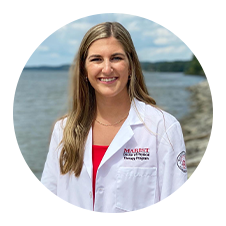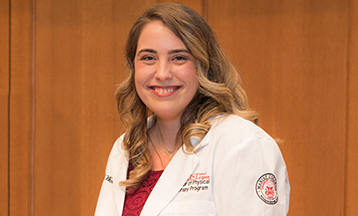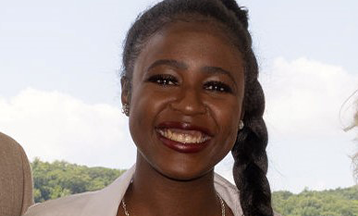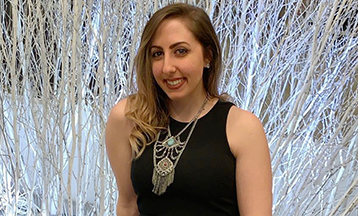-
About
- Friday, May 17, 6 p.m.
- Saturday, May 18, 11 a.m.
Commencement
Celebrating the Class of 2024
About
-
Academics
- Friday, May 17, 6 p.m.
- Saturday, May 18, 11 a.m.
Commencement
Celebrating the Class of 2024
Academics
-
Admission & Financial Aid
- Friday, May 17, 6 p.m.
- Saturday, May 18, 11 a.m.
Commencement
Celebrating the Class of 2024
Admission & Financial Aid
-
Student Life
- Friday, May 17, 6 p.m.
- Saturday, May 18, 11 a.m.
Commencement
Celebrating the Class of 2024
Student Life
- Athletics
Students talking to each other in front of posters

Mary Smyth
New Fairfield, CTAcademic School
ScienceCampus
New YorkWhat are your career goals / academic goals?
Once I graduate from Marist, I hope to pursue a job at an outpatient orthopedic physical therapy clinic in New York City with a focus on sports and concussion rehabilitation. Once I gain more years of clinical experience, I aspire to eventually attain a faculty position at a DPT program in the Northeast area.
Why did you choose to pursue your graduate degree at Marist? Why did you choose to pursue this degree program?
I chose to pursue my DPT at Marist because I was impressed with the faculty and the state-of-the-art facilities. Now that I am finishing up my last year of PT school, I could not be happier with my decision to come to Marist. Over these past three years, I have made strong connections with the faculty and other students, and I have learned a great deal of information. The faculty at Marist truly get to know each and every student and teach the material in a practical way that makes the transition from classroom to clinic easier. I feel fully prepared and excited to start my career as a new-graduate PT.
I chose to pursue a Doctorate of Physical Therapy because I have always loved how PTs get to make close connections with our patients as we follow their progress over time. Physical therapy is unique to other healthcare careers in that we spend so much time with our patients over several consecutive weeks, so we get to know their strengths and weaknesses and slowly challenge them more and more each session. Growing up with a background in sports, I have been able to use my athletic experience to create unique therapeutic exercises for patients. Also, I feel that I am able to connect with and motivate athletes on a personal level from experiencing previous injuries of my own in the past.
Tell us about a project or course that was particularly meaningful to your professional development / academic development.
One course that was particularly meaningful to my professional development was Neuromanagement II. While I plan to initially pursue my career in orthopedics, I developed an entirely new appreciation and knowledge for treating the Neurologic population and feel more prepared to do so after taking that course. Learning about Parkinson’s disease, Spinal cord injuries, TBIs, ALS, MS, and Huntington’s disease opened my eyes to the impact that physical therapy can have on this population. I found the labs to be particularly beneficial and meaningful to my professional development
because we were able to work with individuals within the community with neurologic conditions. In my clinicals following this course, I felt more confident in my abilities to treat the Neurologic population and have grown strong connections with these patients over time.
Tell us about a meaningful experience you had at Marist as it pertains to your degree (whether that be with a Professor, Marist service, Scholarship opportunity, etc.).
A meaningful experience I had at Marist was receiving my White Coat in front of my family, faculty, and peers. After so many Covid restrictions and virtual lectures, it was exciting to be recognized as a cohort that had accomplished so much leading up to the ceremony. It also felt like a fresh start to resume hands-on labs and in-person lectures which was something that we had been eager to return to. Following the White coat ceremony, I felt even more determined and excited to finish my degree and eventually pursue my career as a newly licensed PT.
What advice would you give to a student considering pursuing this degree at Marist?
I would say to try and get as much clinical experience as an intern/PT aide as you can prior to pursuing your degree at Marist. Not only did this help me with my knowledge of therapeutic exercises, but I felt much more prepared for my clinical education from having so many years of experience as an aide. Also, I would try to have a solid foundation of anatomy and physiology prior to starting at Marist to be well prepared for the courses and make it easier to make connections between lab and lecture. Lastly, I would say to take advantage of all of the opportunities offered at Marist and try to stay as present as you can throughout every lab and lecture. Three years in a Doctorate program can be very challenging to absorb all of the information that is thrown at you. However, early-on, it is important to make errors and ask questions in a safe environment with faculty willing to help prior to entering the clinic and treating patients on your own.



